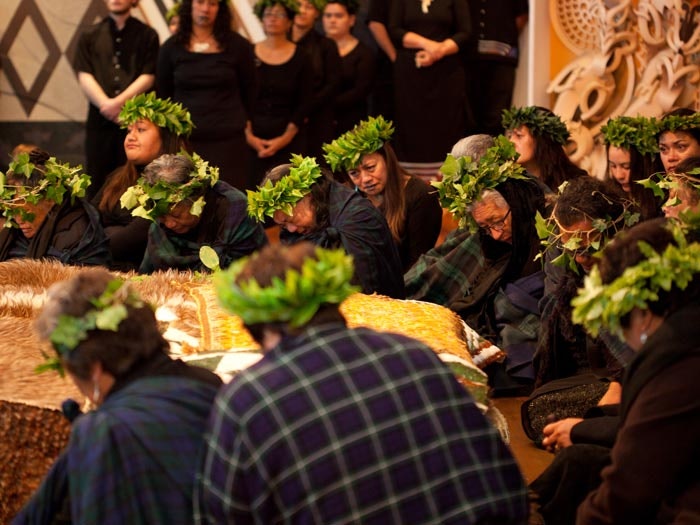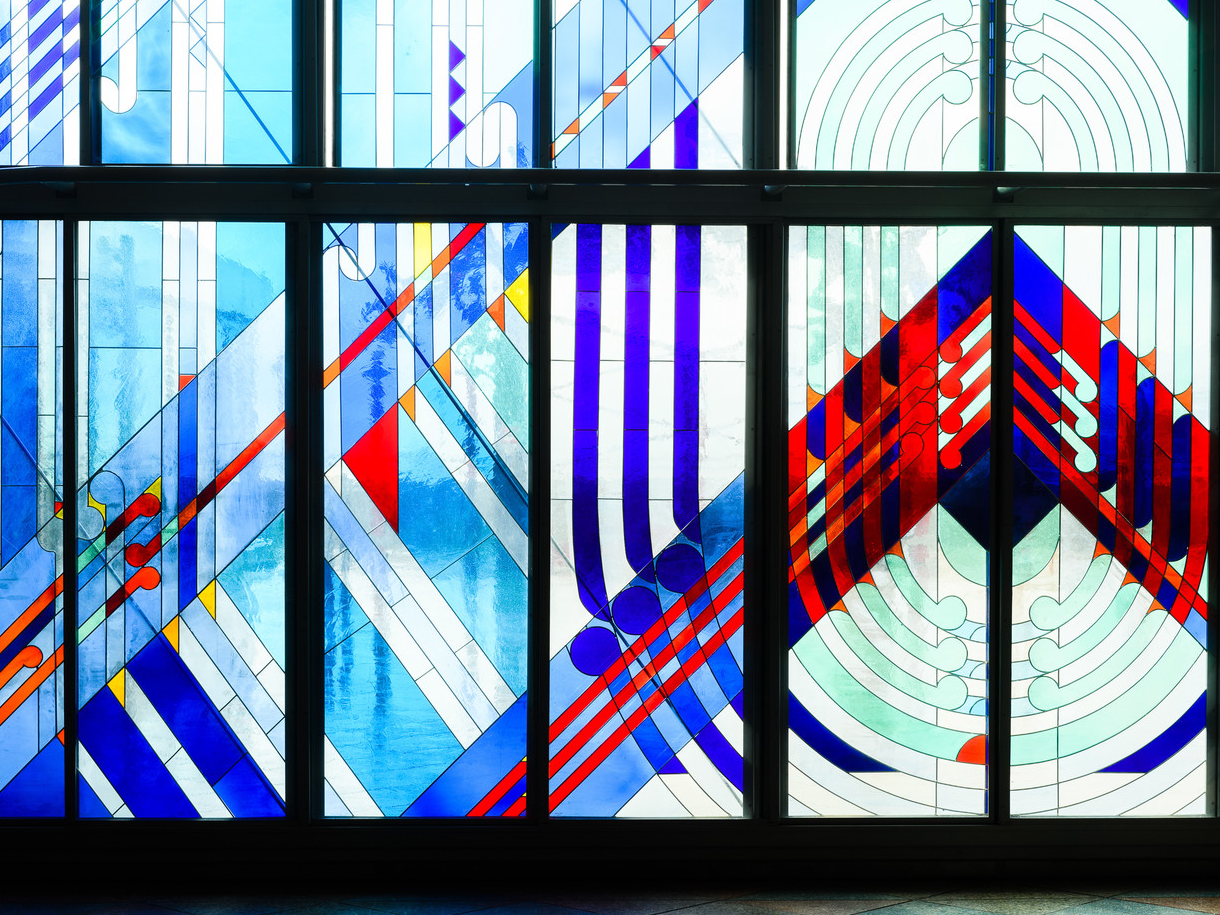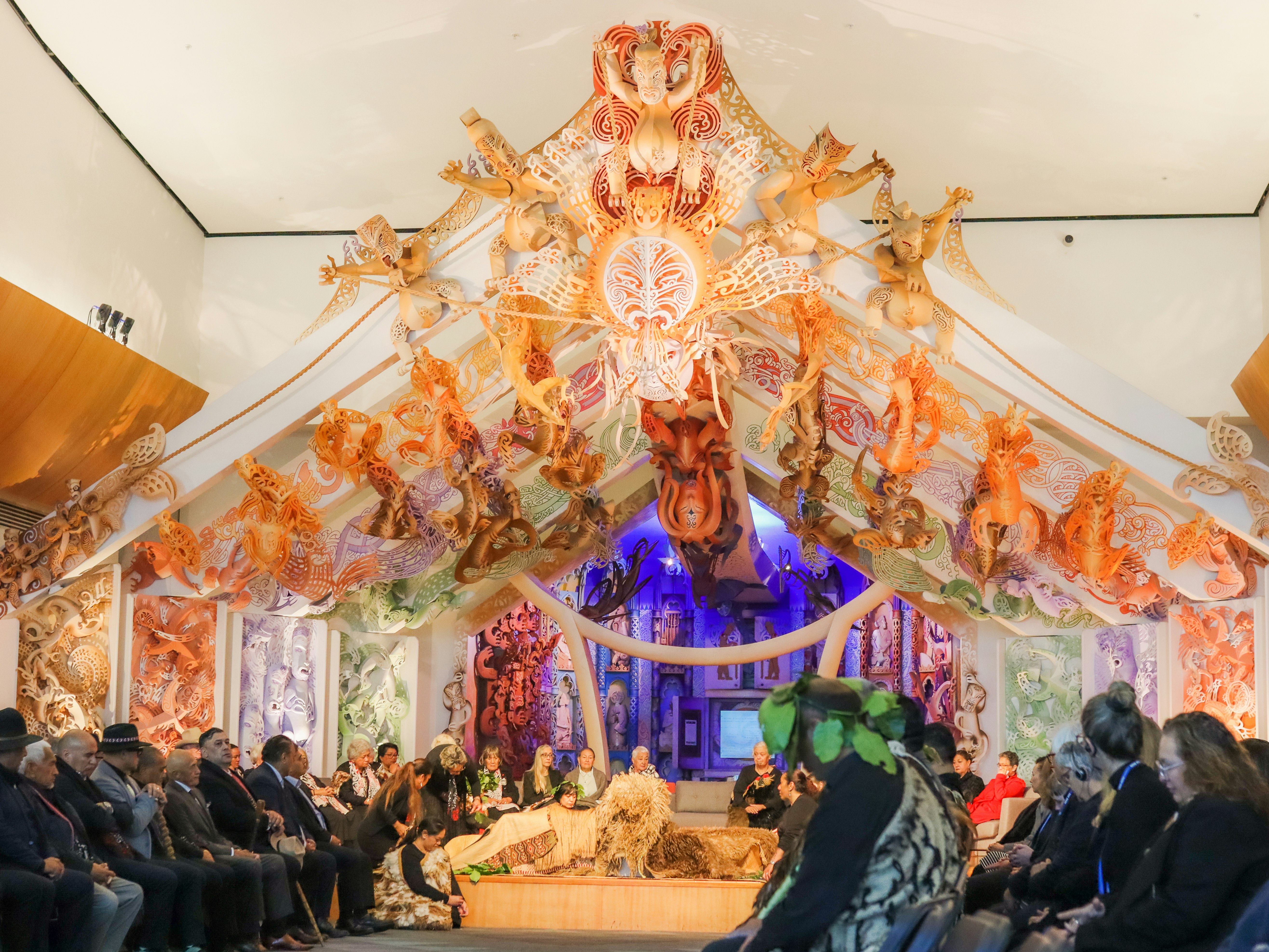Main Theme: Cultural Treasures of Oceania – A German Connection
From the 1850s up until 1919 Germany had established itself in parts of Oceania, which included German New Guinea, parts of the Solomon Islands, numerous nations in Micronesia and German Sāmoa.
From the late-1800s German companies sent their trading ships from Hamburg and Bremen to collect trading goods from its colonies, some of those items included taonga (cultural treasures) and hence the wealth of taonga from Oceania in German museums and institutions, which includes the Übersee-Museum in Bremen, Germany.
The presentations cover the themes of cultural treasures and ancestral remains from Oceania in Germany, their history of collection and trade, contemporary care in museum collections, and pathways to re-connection of these taonga and tūpuna karāpuna to their communities of origin.
The presenters have long-established careers in the museum sector, are leaders in their respective disciplines, and hold previous experience of re-connecting cultural treasures and ancestral remains to their communities of origin.
The Presenters
Prof. Dr. Wiebke Ahrndt – Director of the Übersee-Museum Bremen, Germany.
Prof. Dr Wiebke Ahrndt has a distinguished museology background and career commencing in 1999 with a special interest in cultures and communities belonging to Meso-America. Since 2002 Prof. Dr. Ahrndt has been the director of Übersee-Museum, which has an extensive collection of taonga (cultural treasures) originating from Oceania including those of Pasifika, Māori and Moriori origin. The museum will re-open a major Oceania Exhibition that celebrates both cultural treasures and communities belonging to Oceania in early 2025. Prof. Dr. Ahrndt is the President of Deutsche Museumsbund (German Museum Association) and has worked with the association to implement guidelines that highlight the importance of repatriation to indigenous peoples and communities. In 2017 the Übersee-Museum and Te Papa worked in partnership to repatriate Māori and Moriori ancestral remains, and more recently the museum has held online wānanga regarding Sāmoan and Moriori cultural treasures with their respective communities.
Dr Te Herekiekie Herewini – Head of Repatriation, Museum of New Zealand Te Papa Tongarewa.
In 2007, Te Herekiekie Herewini joined the Karanga Aotearoa Repatriation Programme to manage the safe return of all Māori and Moriori ancestral remains housed in international institutions. Te Herekiekie believes that the work of the programme is not completed until all Māori and Moriori ancestral remains are repatriated from overseas institutions and returned to their iwi or rohe of origin. Te Herekiekie belongs to the iwi of Taranaki whānui, Whanganui, Te Arawa, Ngāpuhi, Te Tairāwhiti and Tainui.
Togialelei Dr Safua Akeli Amaama – Head of New Zealand Histories & Pacific Cultures, Museum of New Zealand Te Papa Tongarewa. Safua Akeli Amaama is the Head of New Zealand Histories and Pacific Cultures at Te Papa Museum.
Formerly she was the Director of the Centre for Sāmoan Studies at the National University of Sāmoa. Currently Safua is the President of the Pacific History Association. She is a historian and has research
interests in cultural heritage, gender, governance, health and migration.
Dr Annika Sung – Loans and Acquisitions Advisor and former Research Assistant for Pacific Histories and Cultures, Museum of New Zealand Te Papa Tongarewa. Annika completed her PhD in Art History at Victoria University of Wellington Te Herenga Waka and has curated the exhibition Then and There, Here and Now: Portraits of Samoa (2023). Together with Dr Safua Akeli Amaama, she is a team member of the Sāmoan Multiplicities project, which works in collaboration with the Ludwig-Maximilians-Universität in Munich, Germany.


